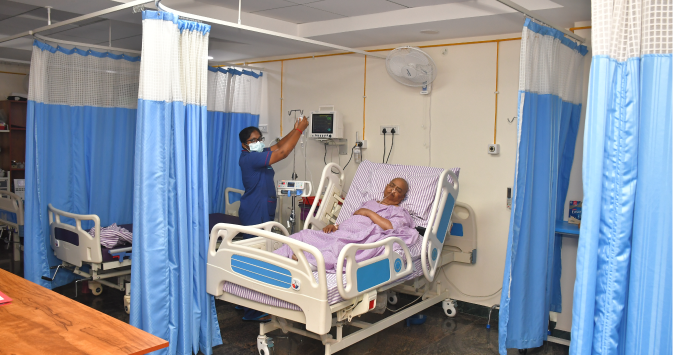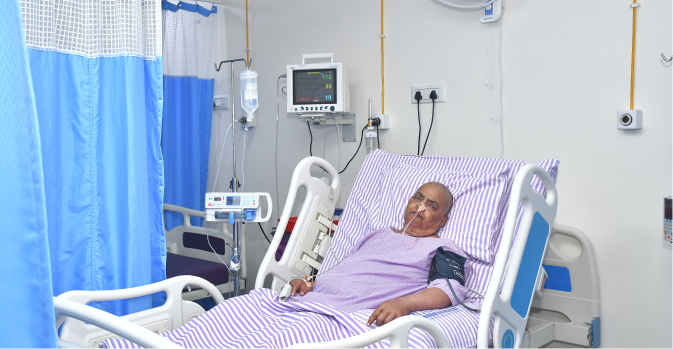What Do We Do?
At our 24-hour Emergency and Trauma Care Unit, we respond to serious medical situations. Our attention to timeliness, precision, and compassion is what makes us trustworthy.
We can help you with everything from fractures and unforeseen diseases to automobile crashes and cardiac arrests. Quick and effective care is always available from our team of qualified doctors, nurses, and paramedics.
Emergency Care Department




Benefits of Choosing Us
You can get emergency care any time of day or night, including on weekends and holidays.
Trained trauma specialists and emergency physicians committed to saving lives.
State-of-the-art medical equipment to guarantee precise diagnosis and efficient care.
Simplified triage and treatment procedures to reduce wait times in urgent circumstances.
Smooth care and recuperation through full integration with other hospital departments.
General Medicine Specialist
A general medicine specialist, also known as an internist, is a medical doctor who specializes in the prevention, diagnosis, and treatment of adult diseases. Internists are trained to manage complex and chronic illnesses and often act as primary care providers for adults. They are skilled in dealing with a broad spectrum of diseases and health conditions.
Dr. Sudha.S MBBS.,DA.,MD Internal Medicine, CCEDM.
Consultant Diabetologist, Critical Care & General PhysicianOur Services
Orthopaedic and Fracture Care Centre
24/7 House Visit and Home Care Services
24/7 Ambulance Service
General Medicine
General and Laparoscopic Surgery
24/7 Paediatric Care
Diabetic Foot Care
Normal Delivery
Skin Care and Kidney Stone Centre
Emergency? Call or Visit Us Now! Book Now

